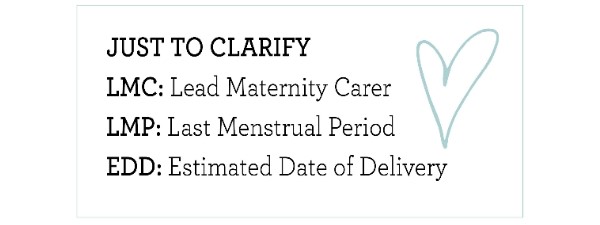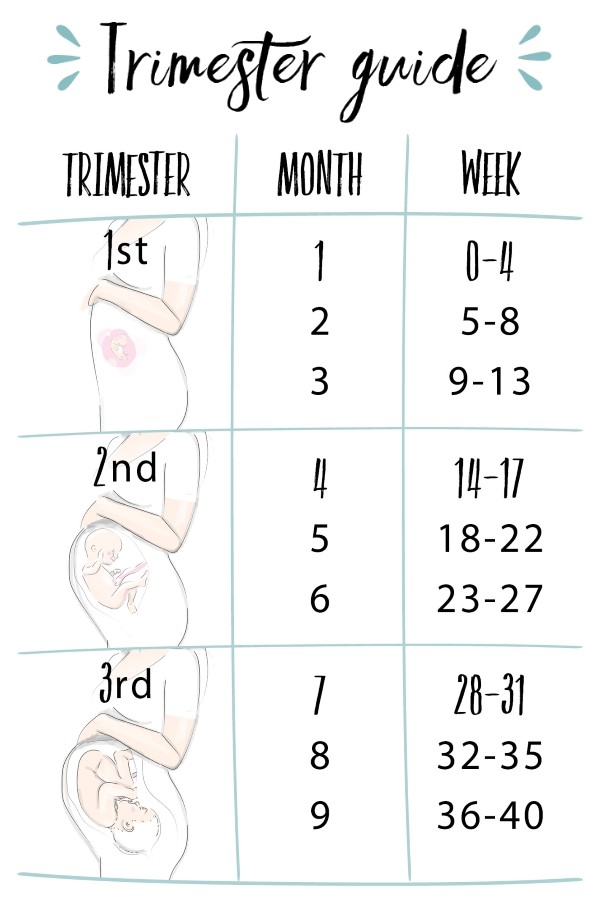Pregnancy 101: Weeks, months and trimesters

Trying to figure out which week, month and trimester you are in during pregnancy can be a complicated equation. We ease the confusion with a handy chart and answers to some FAQs.
Is pregnancy really nine months long?
Good question! And the answer is: not exactly. Some say nine months, others say 40 weeks – which doesn’t quite add up! It’s important to remember that the average length of pregnancy is 280 days, starting from the first day of your last menstrual period (LMP). This equates to nine months and one week, or 40 weeks in total. Most babies are born between 38 and 42 weeks, 40 weeks is only an average.
Why do we start counting before I’m even pregnant?
Even though you weren’t pregnant on the first day of your last period, that is the date from which your LMC will start counting. As women ovulate and conceive at different times in their menstrual cycle, the first day of your LMP (usually about two weeks before you ovulated and conceived your baby) is the only certain date we have. The LMP date is used because most women don’t know exactly when they ovulated, but most do know when their last period started.

How is my due date calculated?
Your due date is calculated as 280 days from the first day of your last period, this being exactly 40 weeks. However, your Estimated Date of Delivery (EDD) is just that – an estimate. Only five percent of babies are actually born on their due date. The EDD calculation uses the average length of a menstrual cycle (28 days) and will be adjusted according to the length of your cycle (if yours is typically longer or shorter than 28 days).
Crunch the numbers for your pregnancy with our due date calculator.

How long is a trimester?
Pregnancy is divided into three phases called trimesters, which are generally about three months each. The first trimester covers weeks 0-13, the second trimester weeks 14-27, and the third trimester takes you from week 28 to baby’s birth.
What about induction?
Induction of labour is the process of sing drugs or other methods to encourage labour to start artificially. An induction is offered if continuing the pregnancy may cause any risk. Your LMC will discuss induction plans with you if you are overdue (more than 41 weeks).

Every week matters
The American College of Obstetricians and Gynaecologists refined the definition of a term pregnancy to highlight that, even at the end of the last trimester, a little more time in the womb can be better for a baby’s health and development.
Early Term: between 37 weeks and 38 weeks 6 days.
Full Term: between 39 weeks and 40 weeks 6 days.
Late Term: the 41st week.
Post Term: after 42 weeks.
|
Enter your due date into your profile and receive our Pregnancy Week-by-Week guide. |

AS FEATURED IN ISSUE 40 OF OHbaby! MAGAZINE. CHECK OUT OTHER ARTICLES IN THIS ISSUE BELOW

















